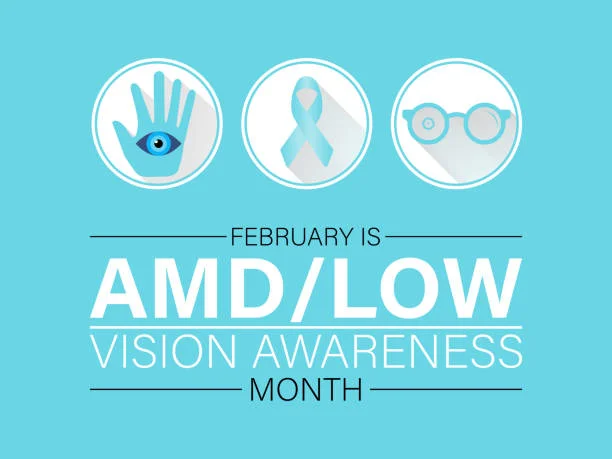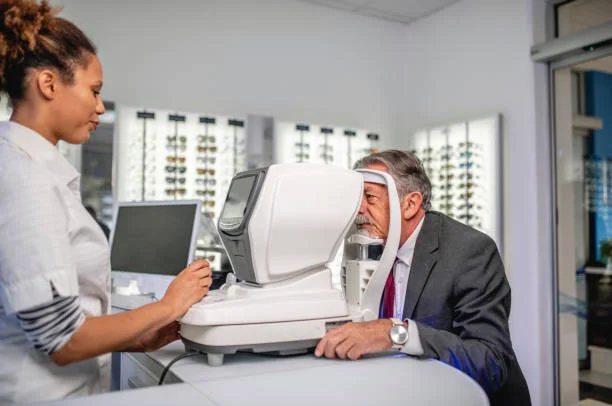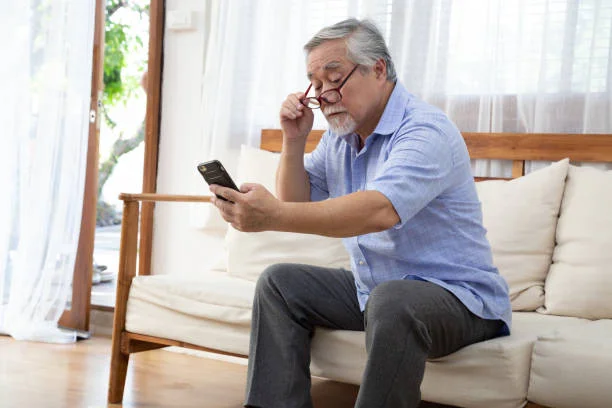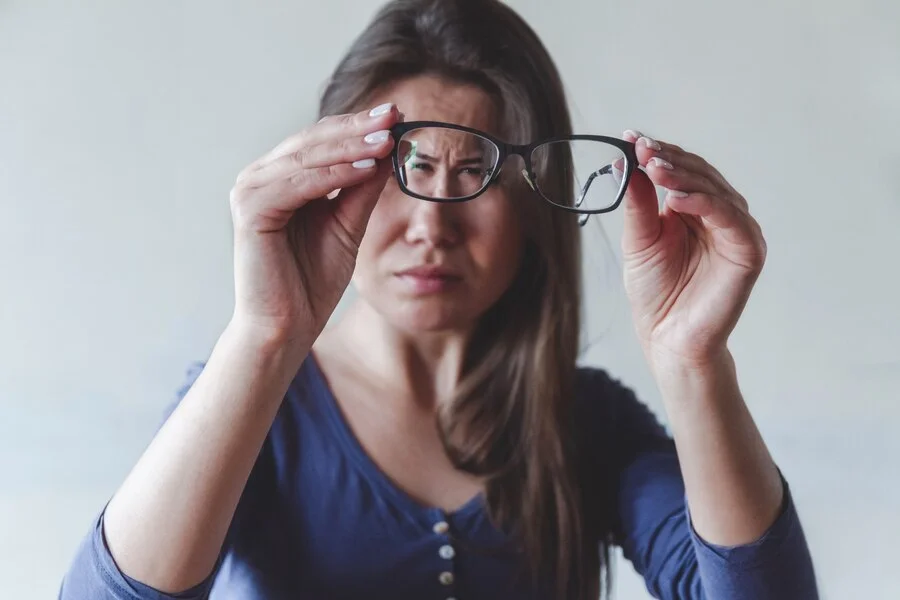February is Low Vision Awareness Month, a crucial time to shine a light on this growing concern. Over 2 million Americans over the age of 50 have age-related macular degeneration, which significantly impacts daily life.
In this post, we will uncover the term low vision, the risk factors related to low vision, and how you can protect your eyesight.

What is low vision?
Low vision is an eye condition that cannot be cured by medical, surgical, or corrective lens treatment. People affected with low vision often experience discomfort in their day-to-day life. These may include reading, reading, writing, cooking, watching TV, or recognizing faces.
Conditions cause low vision
Many different eye conditions can cause low vision, but the most common causes are:
Age-related macular degeneration (AMD): This disease damages the macula, the part of the eye responsible for central vision. AMD is the leading cause of vision loss in people over 50.
Cataracts: A cataract is a clouding of the lens of the eye. Cataracts eye disease are common in older adults, but they can also occur in younger people due to injury, diabetes, or other medical conditions
Diabetic retinopathy: This is a complication of diabetes that damages the blood vessels in the retina, the light-sensitive tissue at the back of the eye. Diabetic retinopathy is the leading cause of vision loss in people with diabetes.
Glaucoma: This is a group of eye diseases that damage the optic nerve, which carries signals from the eye to the brain. Glaucoma is often linked to high pressure inside the eye.

Other less common causes of low vision include:
Corneal diseases: These are diseases that affect the cornea, the clear outer layer of the eye.
Retinal diseases: These are diseases that affect the retina, the light-sensitive tissue at the back of the eye.
Optic nerve diseases: These are diseases that affect the optic nerve, which carries signals from the eye to the brain.
Brain injuries: Injuries to the brain can damage the parts of the brain that are responsible for vision.
Reducing The Risk Of Low Vision
Maintain a healthy lifestyle:
Eat a healthy diet that includes plenty of fruits, vegetables, and whole grains in your diet. These foods are rich in antioxidants and other nutrients that can help protect your eyes from damage.
Wear a hat with a brim when spending time outdoors.
Get regular eye exams:
Adults should have a comprehensive eye exam every two years, or more often if they have a family history of eye disease or other risk factors
Children should have their first eye exam at around 3 years old, and then again before they start school
Other tips:
- Use proper lighting when reading or doing other close-up work.
- Take breaks from computer screens and other digital devices.
- Use eye drops if your eyes feel dry or irritated.
- Be aware of your family's eye health history and talk to your doctor about any concerns you have.
What is a low-vision specialist?
A low-vision specialist is a healthcare professional trained to assist individuals with vision impairment that cannot be fully corrected with standard glasses, contact lenses, or medical/surgical treatments. Their primary aim is to maximize a person's remaining vision and improve their quality of life despite visual limitations.
Who are they?
Typically, licensed optometrists or ophthalmologists have undergone additional training and certification in low-vision rehabilitation.
In some cases, university-trained professionals with specialized knowledge in low vision and assistive devices.
What do they do?
Conduct comprehensive low vision evaluations, which are different from standard eye exams, focusing on specific functional challenges and remaining vision potential
Prescribe and train individuals on how to use various low-vision devices like magnifiers, telescopes, electronic video magnifiers, and specialized lighting.
Recommend non-optical strategies to improve daily tasks, like utilizing technology, adopting specific reading techniques, or modifying the environment for better navigation
Offer counseling and support to help individuals adjust to vision loss and maintain independence.
Collaborate with other healthcare professionals like occupational therapists or rehabilitation specialists to provide a holistic approach to vision rehabilitation.

Who can benefit from seeing a low-vision specialist?
- Anyone with low vision (20/70 or worse) that cannot be fully corrected with standard methods.
- Individuals experience vision loss due to various conditions like age-related macular degeneration, cataracts, diabetic retinopathy, glaucoma, corneal diseases, etc.
- People who struggle with daily activities due to vision limitations, including reading, writing, cooking, mobility, etc.
Final Words
Remember, consulting a low-vision specialist can significantly enhance the lives of individuals with vision impairment by helping them optimize their remaining vision, regain independence, and participate more fully in daily activities.
If you feel any symptoms related to the eye, book an appointment at Elite Eye Care.

